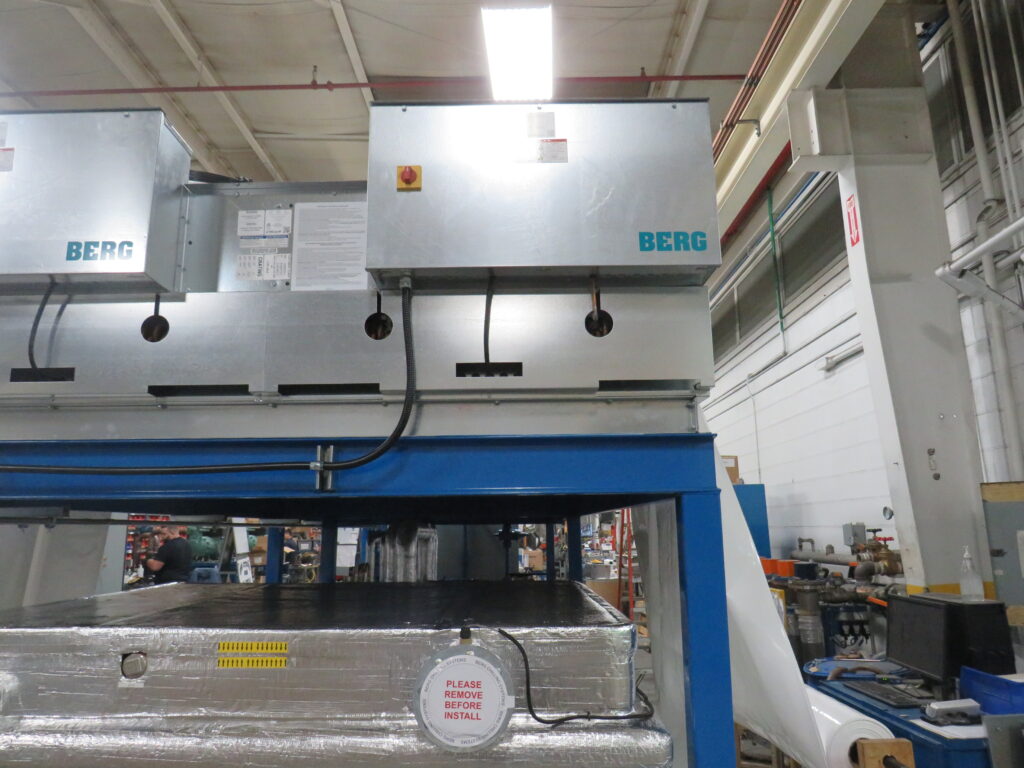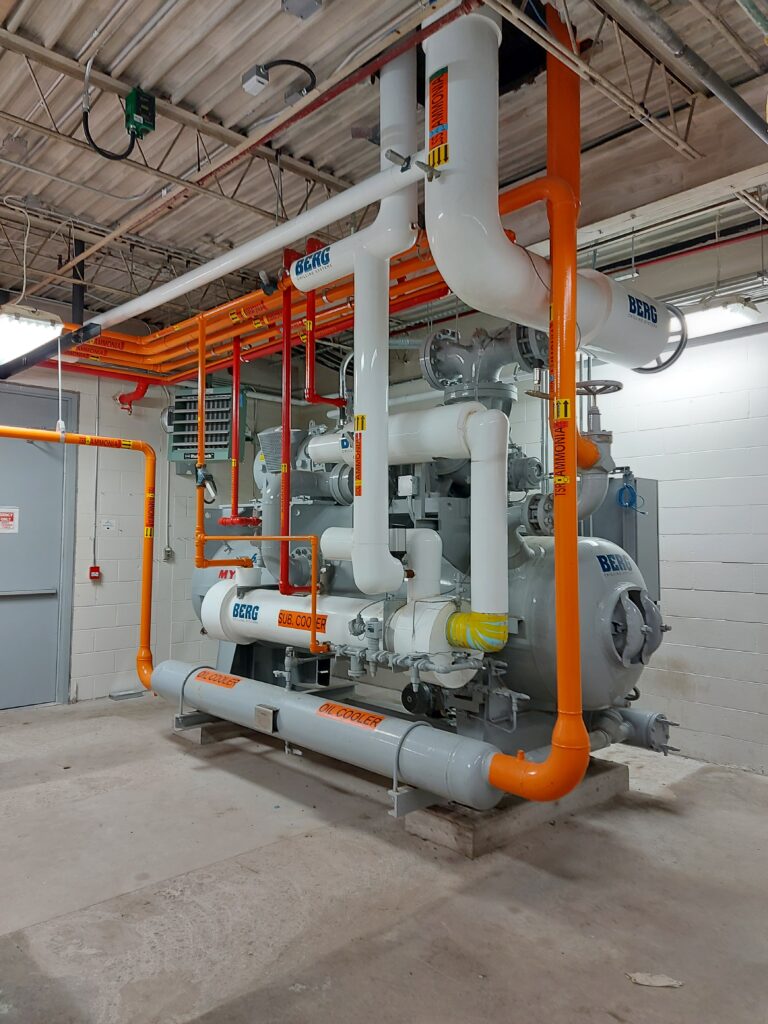In the food processing industry, maintaining product quality, ensuring food safety, and complying with regulations are critical factors for success. A well-designed refrigeration system plays a pivotal role in achieving these objectives. A reliable refrigeration system is indispensable for every food processing facility. It not only prevents the growth of harmful bacteria and microorganisms but also extends the shelf life of perishable products and helps meet regulatory standards. Additionally, a proper refrigeration system maintains the freshness, flavor, and texture of food items. Moreover, it brings energy efficiency benefits, reducing operational costs.
This blog post will explore the multifaceted importance of having a well-designed refrigeration system for your food processing facility.

A well-designed refrigeration system plays a critical role in maintaining food safety standards by preventing the growth of harmful bacteria and microorganisms in perishable food items. By ensuring consistent temperature control, refrigeration systems reduce the risk of foodborne illnesses. These systems slow down enzymatic and microbial activity, which can otherwise lead to spoilage and compromise the safety of your products. In essence, a properly functioning refrigeration system acts as a safeguard against potential hazards. It ensures that perishable food items are kept at precise temperatures, inhibiting the growth of harmful bacteria, minimizing the risk of contamination, and preserving the sensory attributes that make food products appealing to consumers. Investing in a reliable refrigeration system can establish a solid foundation for maintaining food safety throughout your food processing operations.
Within the food processing industry, optimizing the shelf life of perishable products is crucial for waste reduction and profitability. A well-designed refrigeration system creates an ideal environment that effectively slows down the rate of food spoilage and deterioration. By diligently controlling temperature and humidity levels, the system ensures the preservation of freshness, flavor, and nutritional value in food items. As a result, the products can remain on shelves for extended periods, minimizing the necessity for frequent restocking and reducing potential losses. By investing in a proper refrigeration system, you empower your facility to maximize the shelf life of perishable products, bolstering operational efficiency, and enhancing the financial viability of your business.
Compliance with food safety regulations and industry standards is an absolute imperative for any food processing facility. A reliable refrigeration system ensures adherence to regulations, including the Hazard Analysis and Critical Control Points (HACCP) guidelines. The HACCP guidelines mandate that food processing facilities maintain precise temperature control at every stage, including the safe handling, processing, storage, and distribution of food. By implementing a robust refrigeration system, facilities can not only meet but also surpass these stringent requirements. This demonstrates a strong dedication to food safety, quality assurance, and unwavering compliance with industry regulations. A well-designed refrigeration system can ensure passing inspections, mitigating risks, safeguarding the integrity of products, and upholding a positive reputation within the industry. By integrating a proper refrigeration system into your operations, you establish a solid foundation for regulatory compliance, bolstering consumer confidence, and ensuring the continued success of your food processing facility.

Upholding product quality is paramount in retaining customers and fostering brand loyalty. Temperature control plays a pivotal role in preserving the desirable texture, appearance, and taste of food products. A well-designed refrigeration system acts as a safeguard against product damage, including issues like freezer burn, dehydration, and flavor deterioration. By ensuring optimal temperature conditions, the system consistently delivers products that meet the exacting standards anticipated by consumers. This commitment to uncompromising quality cultivates customer satisfaction and fosters a loyal customer base, fostering repeat business and bolstering the reputation of your brand. Through the implementation of a proper refrigeration system, you establish a solid foundation for consistently meeting high-quality standards and maintaining superior product quality, enabling your food processing facility to thrive in a competitive market, and fostering customer satisfaction and repeat business.
A proper refrigeration system not only brings evident benefits in terms of food safety and product quality but also has a positive impact on cost savings. Through the utilization of energy-efficient technologies and optimization of energy consumption, you can reduce operational costs, lower utility bills, and improve the overall efficiency and sustainability of your facility. This is achieved through the utilization of energy-efficient refrigeration technologies such as variable speed compressors and evaporators, the implementation of insulation on refrigeration pipes and equipment, as well as an advanced control system to optimize energy usage. By integrating these energy-saving features, you can effectively minimize energy wastage and enjoy reduced energy expenses while enhancing the overall performance of your refrigeration system.
Having a proper refrigeration system is essential for any food processing facility. It ensures food safety, extends shelf life, maintains regulatory compliance, preserves product quality, and offers energy efficiency and cost savings. By investing in a well-designed refrigeration system tailored to your facility's needs, you establish a solid foundation for success in the competitive food processing industry.
If you're looking for expert guidance on choosing the right refrigeration system for your business, our team at Berg is here to help. Contact us today to discover the optimal refrigeration solutions that best suit your food processing facility’s specific requirements.